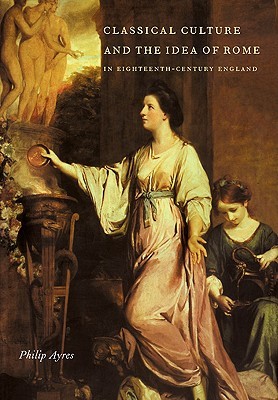
- We will send in 10–14 business days.
- Author: Philip Ayres
- Publisher: Cambridge University Press
- ISBN-10: 052110579X
- ISBN-13: 9780521105798
- Format: 17 x 24.4 x 1.6 cm, minkšti viršeliai
- Language: English
- SAVE -10% with code: EXTRA
Classical Culture and the Idea of Rome in Eighteenth-Century England (e-book) (used book) | bookbook.eu
Reviews
Description
This book is the first to look at the aristocratic adoption of Roman ideals in eighteenth-century English culture. In the century following the Revolution of 1688, the ruling class promoted--by way of its patronage--a classical frame of mind embracing all the arts, on the foundations of "liberty" and "civic virtue". Ayres' study shows that the propensity to adopt the self image of virtuous Romans was the attempt of a newly empowered oligarchy to dignify and vindicate itself by association with an idealized image of Republican Rome.
EXTRA 10 % discount with code: EXTRA
The promotion ends in 21d.18:48:35
The discount code is valid when purchasing from 10 €. Discounts do not stack.
- Author: Philip Ayres
- Publisher: Cambridge University Press
- ISBN-10: 052110579X
- ISBN-13: 9780521105798
- Format: 17 x 24.4 x 1.6 cm, minkšti viršeliai
- Language: English English
This book is the first to look at the aristocratic adoption of Roman ideals in eighteenth-century English culture. In the century following the Revolution of 1688, the ruling class promoted--by way of its patronage--a classical frame of mind embracing all the arts, on the foundations of "liberty" and "civic virtue". Ayres' study shows that the propensity to adopt the self image of virtuous Romans was the attempt of a newly empowered oligarchy to dignify and vindicate itself by association with an idealized image of Republican Rome.


Reviews